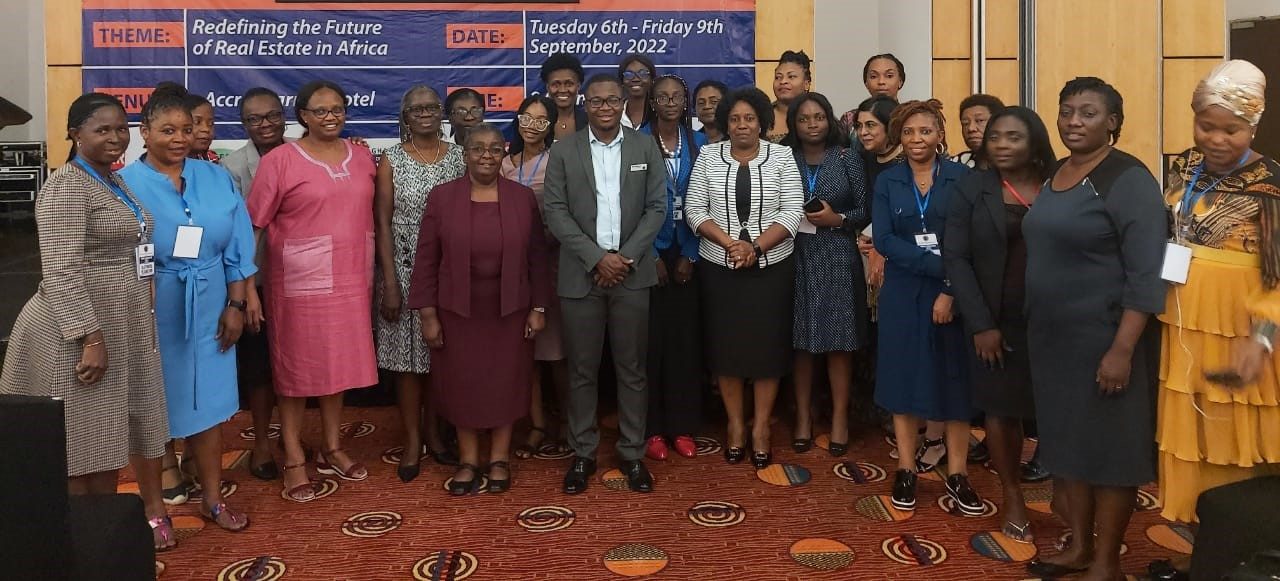The Royal Institution of Chartered Surveyors (RICS) has partnered with the African Real Estate Society (AfRES) through a memorandum of understanding focused on collaborative approaches to sustainability and diversity, equity, and inclusion (DEI).
“The RICS are pleased to have signed an MOU with AfRES, which will set the basis for professional cooperation between our two organisations,” said Jordan D’Gama, Head of Insight, Strategy and Success at RICS. “We both exist to effect positive change across the built and natural environment and our collaboration seeks to not only promote international standards and best practice, but also to collaborate on key areas at the heart of our memberships.”
According to Omakolade Akinsomi MRICS, President of AfRES, the partnership is a historic and significant milestone both organizations.
“Capacity building in the built environment profession is essential to ensure standards are met, collaboration is encouraged, and professionalism in the real estate industry is maintained, and this MoU with the RICS is engineered to meet these objectives. The RICS is a globally recognized professional body, this MoU signals the role AfRES is playing in collaboration, research, and education in real estate on the African continent. This partnership will also further ensure that current and future AfRES members are exposed to the highest professional global standards.”
Although new, the collaboration is already gathering pace, as RICS members and staff participated in the AfRES annual conference in Ghana, which took place in August. RICS proudly sponsored university students from African built environment programmes to attend the conference in person.
“Collaborations between professional institutions that share similar goals and values help to develop their members, providing them wider opportunities to share their experiences,” said Rosemargaret Esubonteng MRICS, a Quantity Surveyor at OshDarley Consult and President of the Ghana Institute of Surveyors. “As the members from the different organizations come together, they learn from each other, network and develop deeper relationships professionally and socially. It also provides a platform that widens the horizon.”
Esubonteng expressed the importance of openness when taking steps to address diversity, equity and inclusion, and sharing the tangible benefits that have been gained as result.
“This will accelerate the awareness and implementation of DEI in other organisations. Discussing the difficulties and challenges they have faced in the process will also guide those who want to introduce DEI as a core area of emphasis,” she said.

RICS also supported a panel discussion and evening event at the conference focused on the experiences and empowerment of women in the profession. Esubonteng, who participated in both discussions, shared key themes:
- Women at different levels of their career would like to have mentors. Those at mid and senior levels also want to have people in similar or more senior positions they can talk to or bounce things off. These mentors do not necessarily have to be women.
- We need male champions who will help to advance the cause of women in the profession because it is the men who are more often the decision makers
- We should share our stories, as they will inspire and encourage others.
“Prioritizing support for women in the built environment will help many more women see that there is a place for them in the sector and they can advance in their career,” she added.
An old and well-known African proverb states, “If you want to go fast, go alone. If you want to go far, go together.” This MOU establishes a more formal partnership and is the first step of many aimed at positivity progressing the global built environment.
Published date: 26 May 2022












